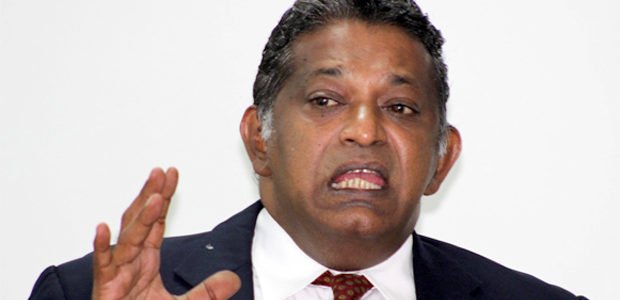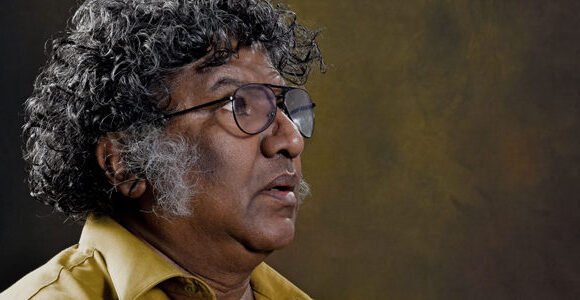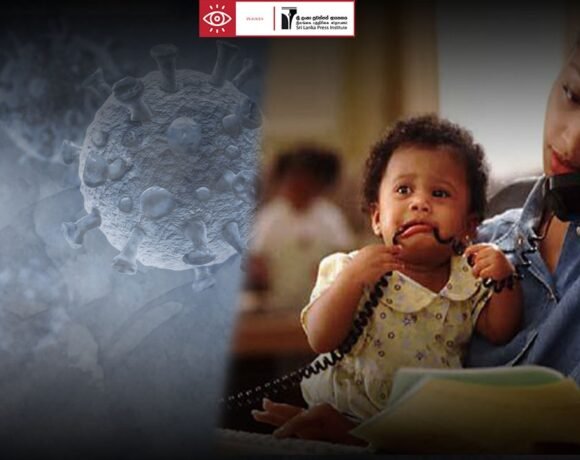
In Conversation with Dr. Packiyasothy Savaranamuthu Why should we co-exist?
PRIYADHARSHINI SIVARAJAH
In the present Sri Lankan context, bringing about reconciliation and coexistence among the races requires discussion on proposals submitted by us in 2015 regarding transitional justice, amendments to the constitution and reconciliation activities said Dr. Packiyasothy Saravanamuthu, Director of the Centre for Policy Alternatives and Secretary, Government Reconciliation Task Force. Dro Saravanamuthu and his initiatives have operated as a voice of conscience to state bodies in Sri Lanka for several years.
During his interview with Catamaran on reconciliation and coexistence among the races, he pointed out that, as long as the activities of any race in Sri Lanka do not violate the basic human rights, reconciliation and coexistence among the races may become a possibility, he said. The following interview elaborates his stance on reconciliation with recommendations on how state and civil society must act in order to promote much-needed coexistence in the country.
The Catamaran: After the 21st April attack there is tension and hostility between races in Sri Lanka. This situation has compelled the review of reconciliation activities that have been taking place for the last four years. What is your opinion?
Dr. Saravanamuthu: We wanted everyone in the government to go the people and speak to them about why the war occurred. Though the government agreed to take the necessary steps, nothing was implemented. In my opinion, transitional justice did not move towards its aim. It was not available at the necessary place and at the required time. There were many flaws in the reconciliation activities between the races.
After the 21st April attack many Muslims were arrested and detained on the pretext of inquiries. These added to the hostility between races. Here, an important question is ‘Who are we in Sri Lanka?’ No one paid any attention to why we must coexist. It was not discussed with the people. They were not given instructions. With 70% of the people in this country being Sinhala-Buddhists, saying One Nation means the people of the other races live within the limitations of the Sinhala-Buddhists. This is wrong. People of all races should be able to maintain their identity. That is important for Sri Lanka.
The Catamaran: Under the subject of protecting the identities of races, the Muslim Marriages and Divorce Act (MMDA) and Muslim women’s dress are often discussed. The argument is that Muslims should live in agreement with the Sri Lankan way. How do you see this?
Dr. Saravanamuthu: There are talks about Madrasas also, right? The government says these should come under the Ministry of Education. In this regard, the Muslim community has also agreed to come to a decision. With regards to the Burka issue, the government cannot compel anyone to dress a certain way. I strongly object to this. Others cannot order or influence how I dress. While, for security reasons, temporary changes could be made to this, in the long run this is not a solution, even for security purposes.
Muslim men can marry a 13 year old girl. These practices are found in their community. The question we have to ask now is whether the basic human rights are violated or not. All parties concerned should discuss this. At the end, activities towards amiability the protection of the racial identity and individuality should be created. Through this, basic human rights may be protected. This will be beneficial for the country.
The Catamaran: Many Buddhist priests are of the opinion that Muslims prefer to live as Arabians rather than as Sri Lankans and because of this tension between races is created. What is your opinion regarding this?
Dr. Saravanamuthu: When it is emphasised that the Muslims and Tamils should live like the Sri Lankans, does it mean that they should obey the majority and live under their control? Muslims and Tamils already live as Sri Lankans. When the National Anthem is recited, do they not stand up in respect? Except Buddhist monks, all others stand up and pay their respects. So, what is properly meant by living as Sri Lankans?
The Catamaran: When bringing about reconciliation in the country and co-existence among races, it could be observed that Sinhala-Buddhist extremism is overpowering. Do you think reconciliation is possible with these challenges?
Dr. Saravanamuthu: There should be a change in the minds of the Sinhalese. They should come forward and say, Sri Lanka belongs to all races. Buddhism is a philosophy. There is a very big difference between Buddhist religious activities and Buddhist philosophy. Unless a change of mind takes place in the Sinhalese people, these problems will never be settled. In our constitution, Buddhism is given primary status and because of this alone, Gnanasara and the likes need not be arrested when they disseminate racist propaganda. The law should be implemented equally for everyone in a country. Gnanasata was freed in the name of Buddhism. This is not democratic.
The Catamaran: It was a pardon granted to Gnanasera Thero by the President.
Dr. Saravanamuthu: In a contempt-of-court case, the High Court and Court of Appeal made the correct decision and sentenced him to jail. When the President interferes in this matter it is a violation of the constitution. Does it mean that Buddhism is given the foremost place and that the Buddhist monks can do anything they want? Why should Gnanasara Thero be released in the current situation? What is the necessity? Through this, President Sirisena has expressed that he will be the presidential candidate if anything happens to Gotabaya Rajapakse, who is under medical treatment. I am not sure where President Maithiripala Sirisena gets his advice from. He has violated the constitution twice. When he relinquishes his position, legal action can be instituted against him.
The Catamaran: The government of good governance is very much in need of the support of civil society groups, including yours. In that case, the failure of the government in the reconciliation efforts can also be considered your failure. What is the reason for failure?
Dr. Saravanamuthu: It is true that we worked with a lot of confidence in the Good Governance Government. We were able to bring some favourable changes through. It could be mentioned that in the last 4 years, some aspect of the changes we brought about were the Right to Information Act, 19th Amendment and many economic reforms. But no communication mechanism was available to clearly explain them to the people. Due to this, the implementation of these changes did not reach the people, so it is understandable that they could not feel the changes.
Similar to political parties, there are conflicts between civil society organisations. Even when Maithiripala came to power, he talked about the abolition of executive presidency and Right to Information Law. As a civil society group active for 25 years, we emphasised these transformations. My opinion is that while the civil society groups prepare these programmes, the political parties must implement them. In a similar situation like this in 2014 when we proposed this programme, many people laughed at us saying that there was no possibility for this in Sri Lanka. But we were able to fulfil at least some objectives. Another big cause for the overall failure, is the clash between Ranil and Sirisena.
The Catamaran: With reconciliation programme in a confused state, how will you tackle co-existence between races?
Dr. Saravanamuthu: People must be enlightened about why reconciliation is necessary in our country. In my view, it cannot be resolved within a short period. There are many subjects to be resolved in the long run similar to the changes in the educational programmes. The government must give it priority and take a leadership role in implementing the changes. We need more programmes like the Sudu Nelum Movement (White Lotus Flower) organised by former President Chandrika Bandaranayake.
The Catamaran: You have put forward recommendations for implementation of the reconciliation programmes by the Reconciliation Task Force within a short period. Were those recommendations implemented?
Dr. Saravanamuthu: We submitted a report consisting 50 recommendations but the government did not officially accept it. In it we mentioned about accountability and that at least one International Judge should be appointed for the inquiry of each case so that the affected people will have confidence. But the government cried in opposition that it will affect the sovereignty of the country and that the armed forces cannot be betrayed. Now, under Transitional Justice we only have the Office on Missing Persons, Office of Reparations and Truth Finding Commission.
For the Office on Missing Persons to function properly, the government should provide assistance such as the appointment of forensic experts and training of personnel. There are about 20,000 files regarding missing persons and decision must be made as to where we begin with the inquiries. It must be done effectively so that the permanent office will run irrespective of which government comes into power. Had these programmes been implemented another emergency situation would not have risen in the country.
The Catamaran: In your opinion how should one live as a Sri Lankan?
Dr. Saravanamuthu: Sri Lanka is a country with multi-racial communities but Sinhalese Buddhists are more in numbers. Even then, every race has the right to their own identity. At the same time, they are free to join together and call themselves Sri Lankans but should not violate basic human rights. In this regard, review of the Muslim Marriage and Divorce Act, Kandyan Law and the Thesavalamai Law are necessary.
All parties should sit down to discuss things that violate our human rights. In Sri Lanka the Sinhala community and the Tamil community are united against the Muslim community. During friction times this is a common aspect. In times like these, we must study the problems and come to a decision. I propose that we go back to the 2015 programmes. Dialogues should start with Reconciliation programmes, constitutional reforms and transitional justice.
The Catamaran: Do you think this will happen in the future?
Dr. Saravanamuthu: We should engage in efforts to make is possible. Now we are all focused on the Presidential Elections. In my opinion, the election is not of importance. The President’s post is not an important one. Since the 19th amendment, all his powers were abolished. This causes the need for a President to be formally elected to represent all races in the country. In my opinion JVP’s 20th amendment to the constitution should be passed with the abolition of the executive presidency in full for a strong parliamentary system that coul carry forward reconciliation programmes more appropriately.
The Catamaran: In bringing about coexistence, what should the contribution of the people be?
Packiasothy Saravanamuthu: I wish to mention Israeli Philosopher Margalit’s words: ‘A decent society and civilised society is one whose institutions do not humiliate the people under their authority and whose citizens do not humiliate one another.’ People of all races should respect one another and individual identities should be honoured. We should not forget that people of all races have contributed to the prosperity of Sri Lanka. After the Arabian Spring, Middle East countries like Tunisia, South Africa, Rwanda and countries like Chile and Argentina in South America are all examples of those that have successfully implemented reconciliation programmes. Sri Lanka should also follow their path.
This article was originally published on the catamaran.com








